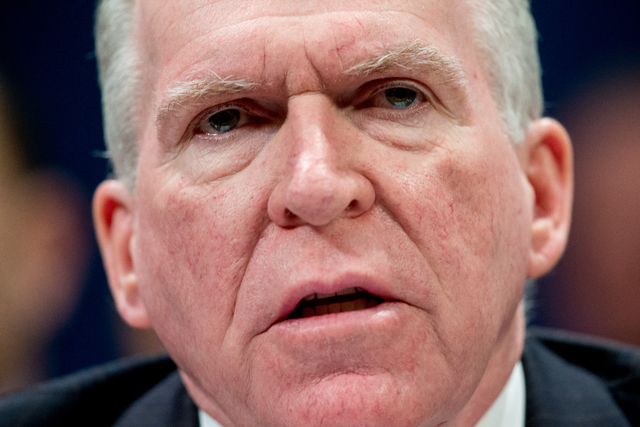WASHINGTON — CIA Director John Brennan warned Thursday that as Islamic State loses ground in Syria and Iraq, it probably will use “guerrilla tactics” to launch more terrorist attacks like those in Orlando, Fla., Brussels and Paris.
WASHINGTON — CIA Director John Brennan warned Thursday that as Islamic State loses ground in Syria and Iraq, it probably will use “guerrilla tactics” to launch more terrorist attacks like those in Orlando, Fla., Brussels and Paris.
The CIA has seen “no sign” that Omar Mateen, who killed 49 people at a gay nightclub in Orlando, was in contact with Islamic State or any other terrorist group, Brennan told the Senate Intelligence Committee.
Like the married couple who killed 14 people on Dec. 2 in San Bernardino, Mateen appears to have been self-radicalized online, in part by listening to jihadist sermons and watching videos of beheadings by militants.
Online exhortations and blueprints for attacks that are pushed to followers on Twitter and via encrypted apps can inspire individuals to “embark on this path to destruction” while evading a surveillance net that tracks communications and travel for potential signs of terrorist plots, Brennan said.
Intelligence analysts are concerned that Islamic State may try send terrorists into Western countries by hiding them among refugees, by using smuggling channels or by finding weaknesses in the security screening of legitimate travelers, he said.
Gunmen and suicide bombers, including some who had returned from the war in Syria, killed 130 people in restaurants, a concert hall and a sports arena in Paris last Nov. 15. And on March 22, another terrorist team directed by Islamic State bombed the airport and subway in Brussels, killing 32 people.
Islamic State has enlisted thousands of fighters with European passports who could be tapped to return home and launch attacks, Brennan warned.
The U.S.-led coalition has steadily chipped away at the extremist group’s ability to raise money, and has increasingly choked the flow of foreign fighters into Syria and Iraq.
But the group still rakes in tens of millions of dollars each month from crude oil sales and taxes on people living under its control, Brennan said.
Islamic State is a “formidable adversary,” Brennan said, and dismantling it will be a “long and difficult fight.”
The number of Islamic State fighters and operatives “far exceeds what al-Qaida had at its height,” he said. The CIA estimates the group fields up to 20,000 fighters in Syria and Iraq, down from 33,000 fighters last year.
Islamic State’s arm in Libya is its “most dangerous” and “most developed” affiliate, with about 8,000 fighters, he said.
But the group also has about 1,000 fighters in Egypt’s Sinai Peninsula, he said, and is now the country’s chief terrorist threat.
The Sinai affiliate has attacked Egyptian military and government targets, as well as foreign tourists. It claimed responsibility for downing a Russian passenger jet over the Sinai last October, killing all 224 people aboard.
Islamic State affiliates in Yemen and Afghanistan are much smaller and have been weakened recently by internal rivalries and a lack of cohesion, Brennan said.

